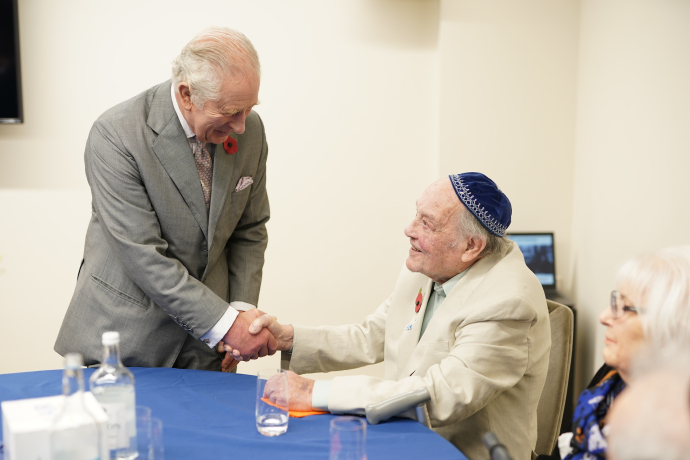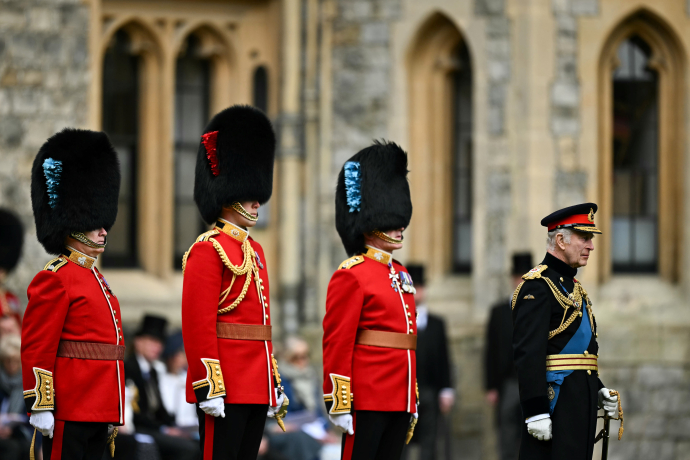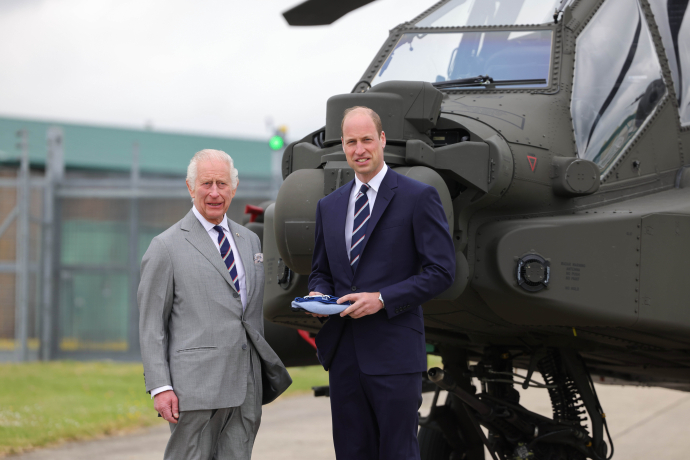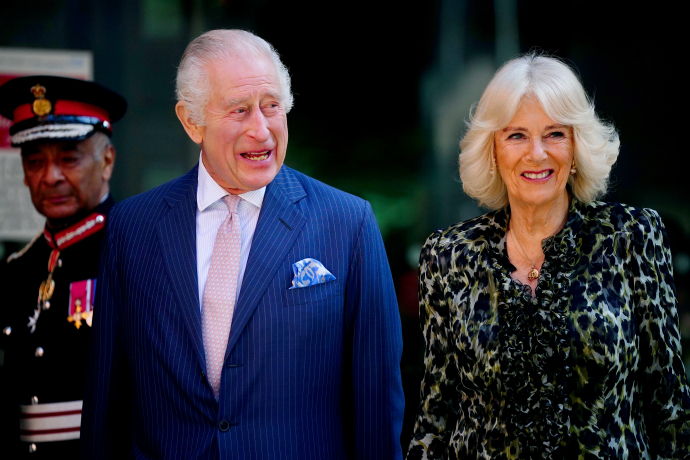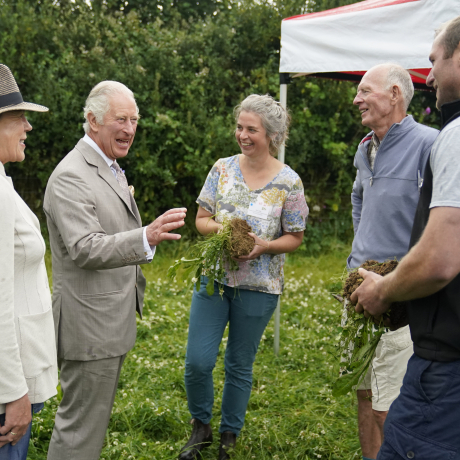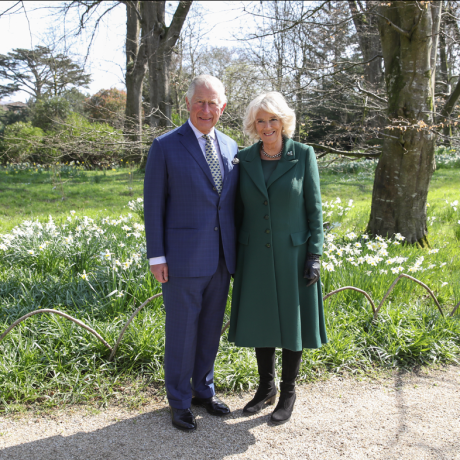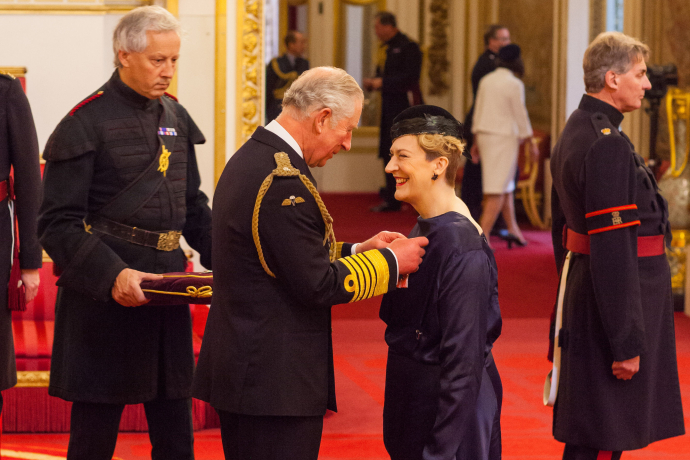A speech by HRH The Prince of Wales to the House of Lords about young people
Published
But there are others who have been slow to realise the role young people can play – especially in an age then people seem to grow up so much more rapidly than before. Many private schools have also failed to appreciate the value of their facilities to young and old alike during the holidays then they are not normally required.
My lords, I can not imagine that during the course of this debate there will be many of you who will dispute the continuing need for voluntary service to the community – in one way or another. The fact that voluntary service is still given, and is apparently still necessary, in an increasingly egalitarian society . . . may seem something of a paradox.
And yet one must take into account the very real desire on the part of all sorts of people to give service to other human beings without thought of any remuneration of particular recognition for themselves.
This is increasingly the case nowadays with so many more young people becoming involved in voluntary and indeed, professional social work. It is interesting to note that the majority of bodies engaged in the provision of social services accept the desirability – even the necessity – of using voluntary help to supplement their services and to fill those gaps that inevitably occur.
In the evidence submitted by the Association of Social Workers to a committee set up by the National Council of Social Services and the National Institute for Social Work Training it was said that “those members who had already had considerable experience of using volunteers in their work were sure that much could be done to extend their use; others were not so certain”. It is worth bearing in mind, too, that the attitude of central Government departments with major responsibilities for the personal social services is one of encouragement and appreciation of the present and future place of voluntary work in these services.
It is sometimes the case that voluntary workers are able to bring a more personal and sympathetic approach to those they work with than is possible for some of the professionals. I say “sometimes” because obviously it is a ridiculous generalisation to assume that only volunteers are human beings while the trained social worker is somehow a slightly less than human cog in a bureaucratic machine.
My Lords, I would like to concentrate on one aspect of service which has attracted my interest for some time – and that involves younger people. Being still young enough myself to remember! – I think I can safely say that as adolescents most people have excess energy to spare and need adventure, excitement and a challenge of one sort or another.
Reading the history of the First World War (and even of the second) it has always intrigued me to discover that so many young men were caught up in the emotional and almost chivalrous excitement of a new war and all the chances it provided for adventure and glory in the service of one's country.
All that desire for glory and adventure was so tragically and bloodily consumed in two World Wards with the deaths of whole generations we could ill afford to lose. Those that survived learnt a great deal, grew up extremely quickly and, one can only imagine, became wiser and more reasonable men. One of the arguments in favour of national service – and incidentally of its re-introduction – was that it gave young people a taste of discipline when they most needed it and also a taste of adventure – if they were lucky..
The point I am getting at is not that National Service should be re-introduced – there is no reasonable or logical justification for a start – but that somehow we ought to be thinking in terms of re-creating some of the challenges of war within a peacetime situation so that adolescents in particular, can discover themselves and their individual capabilities through the challenge of adventure and hardship.
It seems to me that the problems we suffer in society as a result of violence, mugging and general anti-social behaviour on the part of younger people, are partly due to a lack of outlets into which pent-up energy and frustration and a desire for adventure can be properly channelled.
In so-called primitive societies the potentially awkward phase of adolescence is overcome at puberty when the young boys are required to prove that they have become men by performing various tests and initiation ceremonies. Through these they become more responsible members of the tribe and are treated accordingly by their elders.
Doctor Kurt Hahn, the founder of my old school, didn't exactly require Gordonstoun boys to undergo initiation ceremonies upon reaching puberty but he believed that a boy must challenge himself and discover his own level of endurance and will power. He also believed in the acquisition of self-knowledge (and thereby self-discipline) through service to others in challenging circumstances. My experience was that this worked surprisingly well, which is one of the reasons why I am so keen that other people should be able to experience it.
Of course you cannot eliminate all the problems that arise, but so often you would find at Gordonstoun that the most difficult and unco-operative of boys underwent an astonishing transformation once they were absorbed into the more exciting and adventurous would of the Coastguards, of the Fire Service, or the Mountain Rescue Service, or the Surf Life Saving Society – where you could actually perform a useful function to the community, but could do so only by subordinating any selfish attitudes to the overall requirements of the team.
People therefore discovered what responsibility and self-discipline meant. It didn't necessarily mean being a “goody-goody” and always obeying the rules, but in a life-saving situation involved a high degree of common sense, courage and teamwork often thought to be beyond the capacity of young people.
I am always astonished by the amount of rot talked about Gordonstoun and the careless use of ancient clichés used to describe it. It was only tough in the sense that it demanded more of you as an individual than most other schools did – mentally or physically. I am lucky in that I believe it taught me a great deal about myself and my own abilities and disabilities. It taught me to accept challenges and take the initiative – why else do you think I am brave enough to stand before your Lordships now . . .
I am brave enough to do so because I believe very strongly that many more young people should be given the opportunity to find adventure and excitement through voluntary service and by organizing themselves after an initial period of assistance and training from an outside organizer. I know of a young people's organization on the south coast of England, which specializes in inshore rescue work on the Solent and surrounding areas.
The boys who comprise this rescue body are an outstanding example of what can be achieved with a group of young people who have found fulfilment and excitement in the very demanding field of sea rescue where they have earned the praise and unqualified admiration of the Coastguard and of thousands of yachtsmen.
Some people may say that it is wrong to allow young boys to take a boat out in rough conditions, but as long as adequate precautions are taken to guard against unnecessary and irresponsible risks, there can be no more rewarding or educative experience for anyone.
I must here pay a tribute to the work of the R.N.L.I. (Royal National Lifeboat Institution) and at the same time urge them to be aware (as I am sure they are) of the need to involve young people in their operations and to recruit their enthusiasm and sense of adventure.
I would hope that in due course many more schools, for instance, that were situated near the cost in suitable areas could supplement the local statutory services (after suitable training) by operating such things as rescue boats themselves. This kind of activity is carried out most successfully by the United World Colleges of the Atlantic – and especially at St. Donat's Castle in South Wales – where the pupils themselves have operated rescue services for several years with immense skill and professionalism.
This sort of activity is obviously dependent upon funds being made available, but I have already been pursuing an idea which has attempted in a very small way to help what one might call the more alienated sections of young people (who otherwise tend to anti-social behaviour and delinquency) to organize themselves with limited financial or technical assistance to undertake the more imaginative sort of schemes.
I have so often felt that given the right incentives (and indeed materials or equipment) that many more young people could become involved in helpful work for the community had they but the chance and the interest. I have decided to establish experimental schemes with the aid of a committee in areas with which I have a titular connection and so far the response in each part of the country has been extraordinarily encouraging.
It is obvious that many young people – and particularly those who are often categorized as amongst the most impossible and the most difficult – are only too keen to become involved in useful or imaginative schemes, but they lack the funds or the necessary equipment. Once an impetus has been provided it is most heartening to see how it is continued and developed by the young people themselves. It is also heartening to discover how comparatively successful has been the scheme adopted recently for the treatment of offenders through community service rather than imprisonment, borstal or probation. Investigation has shown that in several cases the ex-offender continues voluntary service beyond the termination of the court order.
I know that there are many organizations which have for long made great use of young people's enthusiasm and ability – organizations like the Red Cross, or St John's Ambulance brigade or the Royal Life Saving Society where Life Guard Corps is essentially a service for young people.
But there are others who have been slow to realise the role young people can play – especially in an age then people seem to grow up so much more rapidly than before. Many private schools have also failed to appreciate the value of their facilities to young and old alike during the holidays then they are not normally required.
I can understand there are problems, but I do not believe they are so insurmountable as to prevent any sensible consideration of the suggestion.
I think that one of the factors of overriding importance in this debate is the recognition that voluntary service is as beneficial to the volunteer as one hopes it is to the recipients of that service. To be frank it is quite simply “good for the soul”. Voluntary service is an essential element in any society that calls itself civilized. It is in many ways a measure of people's concern for each other as human beings and the only way in which concern, compassion, a sense of duty or service can be properly expressed. Therefore it seems to me that the Government has a duty to ensure that as many people as possible are able to offer themselves for voluntary service in a wide range of fields – if necessary making helpful concessions (financial or otherwise) in order to enable organizations to continue to provide a valuable service to the community – both morally and physically.
Related content
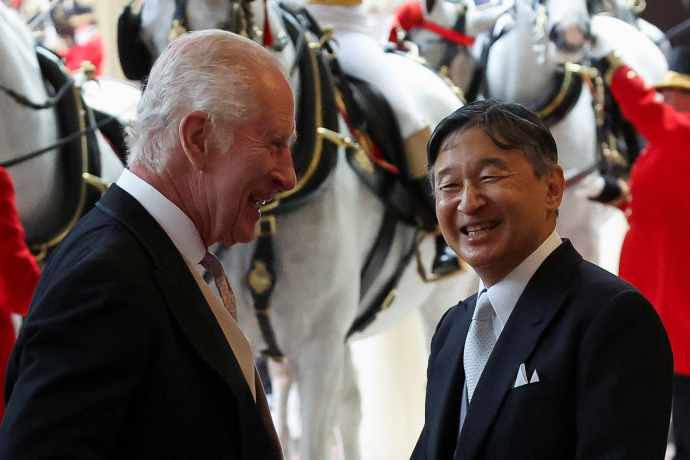

Remarks by The King at Presentation of New Colours, Number Nine Company, Second Battalion, The Irish Guards
Every guardsman standing here today is thus the Heir and Successor to the great legacy, the historic customs and fine traditions of your forebears within the Battalion.
A speech by The King at the D-Day National Commemoration British Normandy Memorial, Ver-sur-Mer, on the 80th anniversary of D-Day
On the beaches of Normandy, in the seas beyond and in the skies overhead, our Armed Forces carried out their duty with a humbling sense of resolve and determination: qualities...
A speech by The King at the UK's National Commemorative Event in Portsmouth to mark the 80th anniversary of the D-Day Landings
The stories of courage, resilience and solidarity which we have heard today, and throughout our lives, cannot fail to move us, to inspire us, and to remind us of what we owe...
More details on the upcoming State Visit by The Emperor and Empress of Japan
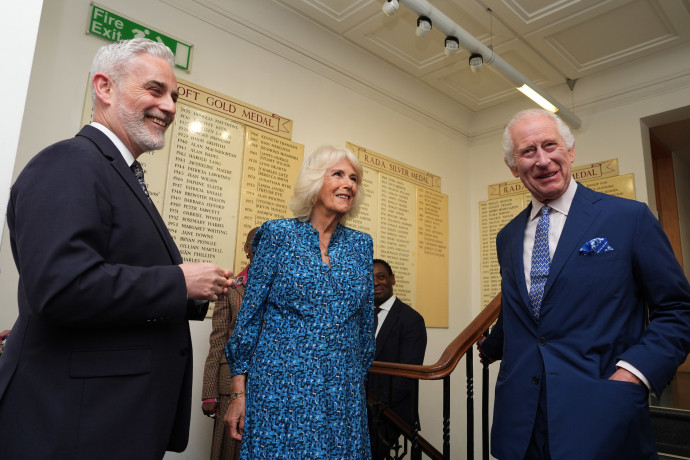
A message from The King to the United Nations 4th International Conference on Small Islands Developing States
Your future is our future. Our islands, our oceans, our planet and, ultimately, all of us need bold and determined action.

The King and Queen, joined by Members of the Royal Family, will mark the 80th anniversary of the D-Day Landings
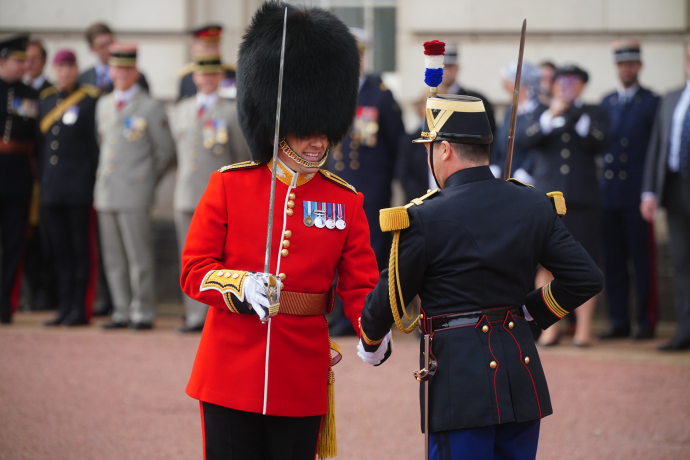
The King's support of the Arts
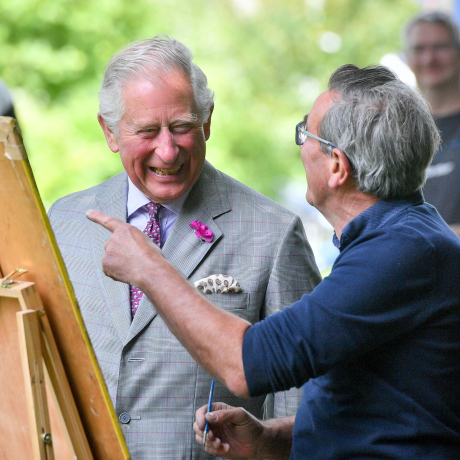
A message from The King on the 75th Anniversary on the Founding of N.A.T.O.
Message from The King for the 2024 Royal Maundy Service
It is my special prayer today that Our Lord’s example of serving one another might continue to inspire us and to strengthen all our communities.
Message from The King to mark the 70th anniversary of the end of the Korean War
It is our duty to remember what was once called “the Forgotten War”.
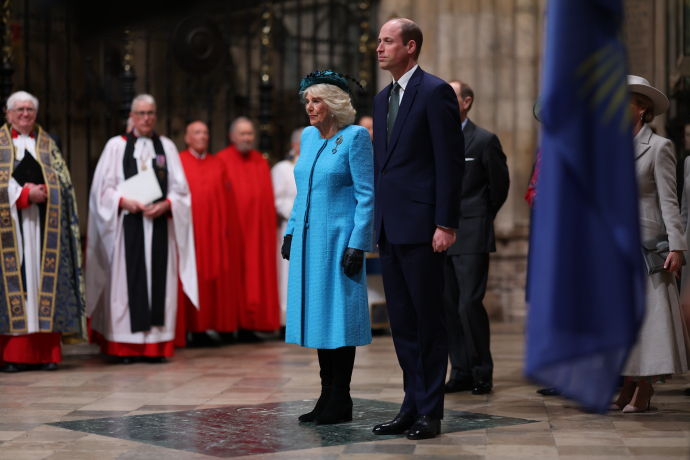
The King's Commonwealth Day Message 2024
The Commonwealth family is strongest when we are connected, through friendship.
A message of condolence from The King to the President of Tanzania following the passing of former Tanzanian President, Ali Hassan Mwinyi
My thoughts and prayers are with former President Mwinyi’s family and the Tanzanian people at this time.
Charities and Patronages
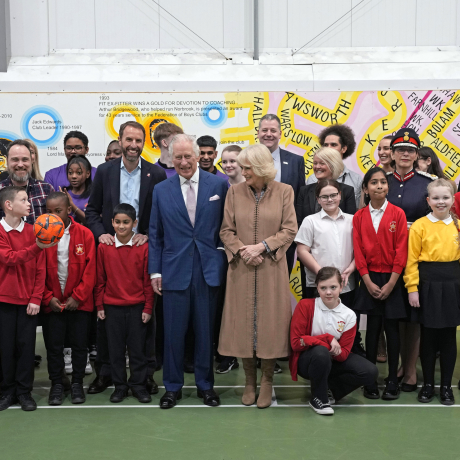
The King's message marking two years of conflict in Ukraine
My heart goes out to all those affected, as I remember them in my thoughts and prayers.

A message from His Majesty The King to Grenada marking their 50th year of Independence
On the occasion of the fiftieth Anniversary of the Independence of Grenada, it gives me great pleasure to send you all my congratulations and warmest good wishes.
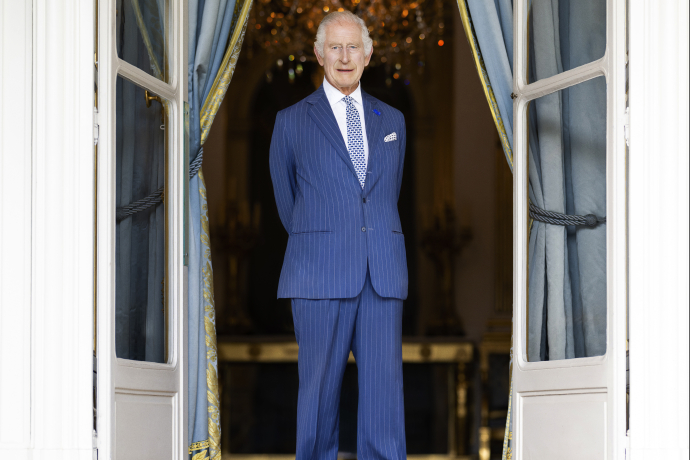
A message from His Majesty The King for the launch of Big Help Out 2024
I have long believed that one of the greatest strengths of our nation is our ability to come together and help each other through times of hardship. Throughout my life, I have...
A message from His Majesty The King to Their Majesties King Frederik X and Queen Mary of Denmark
I look forward to working with you on ensuring that the enduring bond between our countries, and our families, remains strong, and to working together with you on issues which...
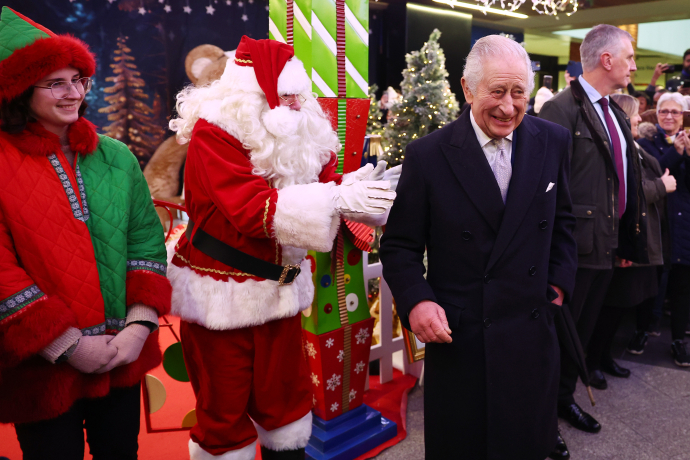
The King and Faith
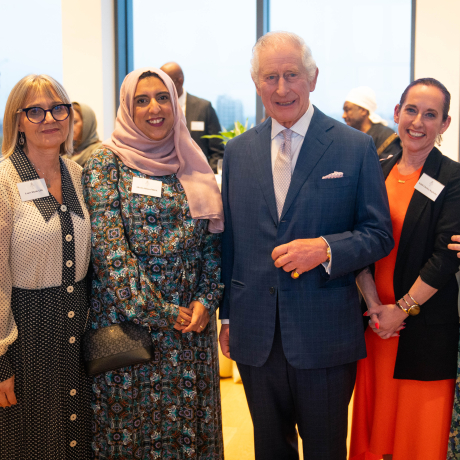
A speech by His Majesty The King at the opening of COP28, Dubai, U.A.E
Change will come by working together and making it easier to embrace decisions that will sustain our world, rather than carry on as though there are no limits – or as though...
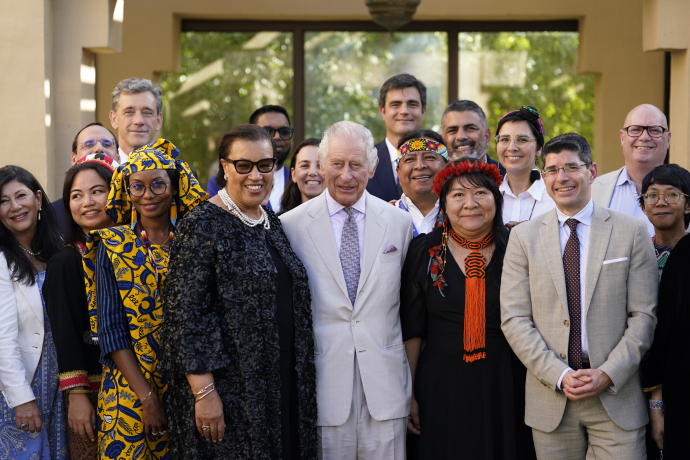

The King's speech at the State Banquet for the Republic of Korea
As our nations strive towards a harmony between progress and preservation, between the past and the present, we can look to the future with great confidence as our peoples...
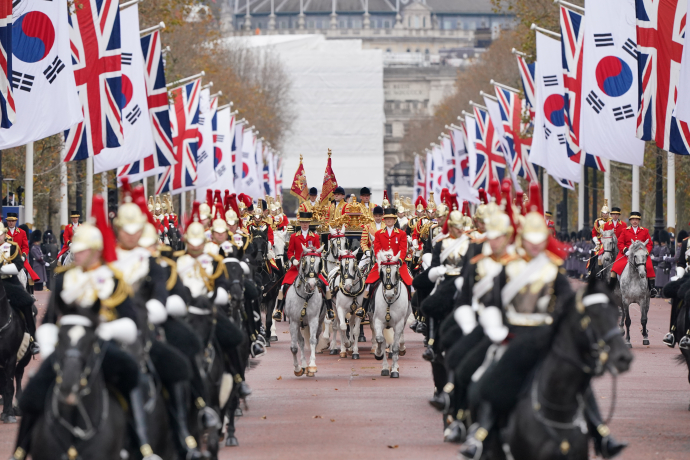
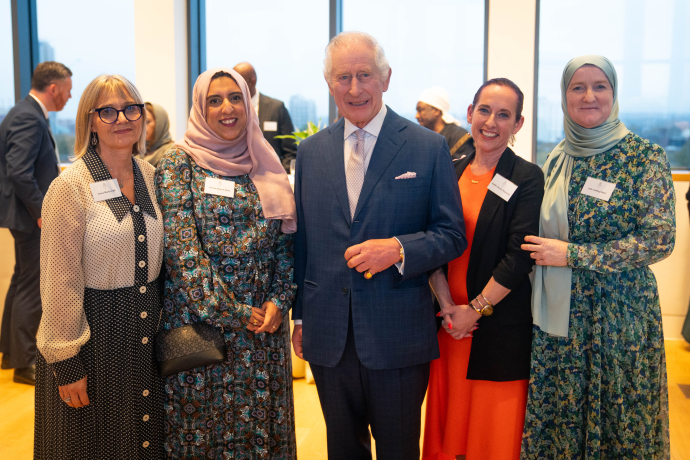
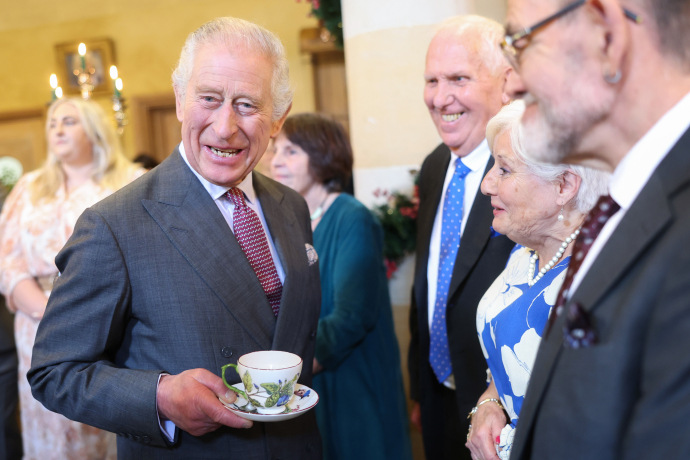
The Coronation Food Project
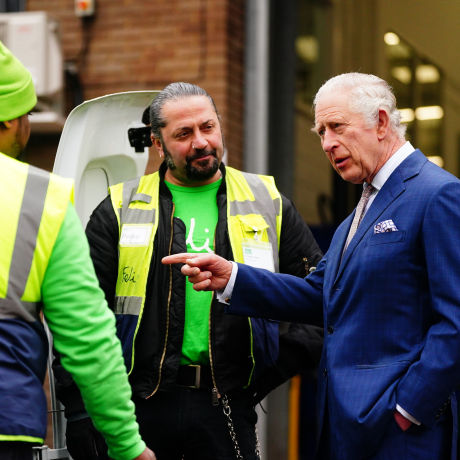
Charities founded by His Majesty The King as The Prince of Wales
